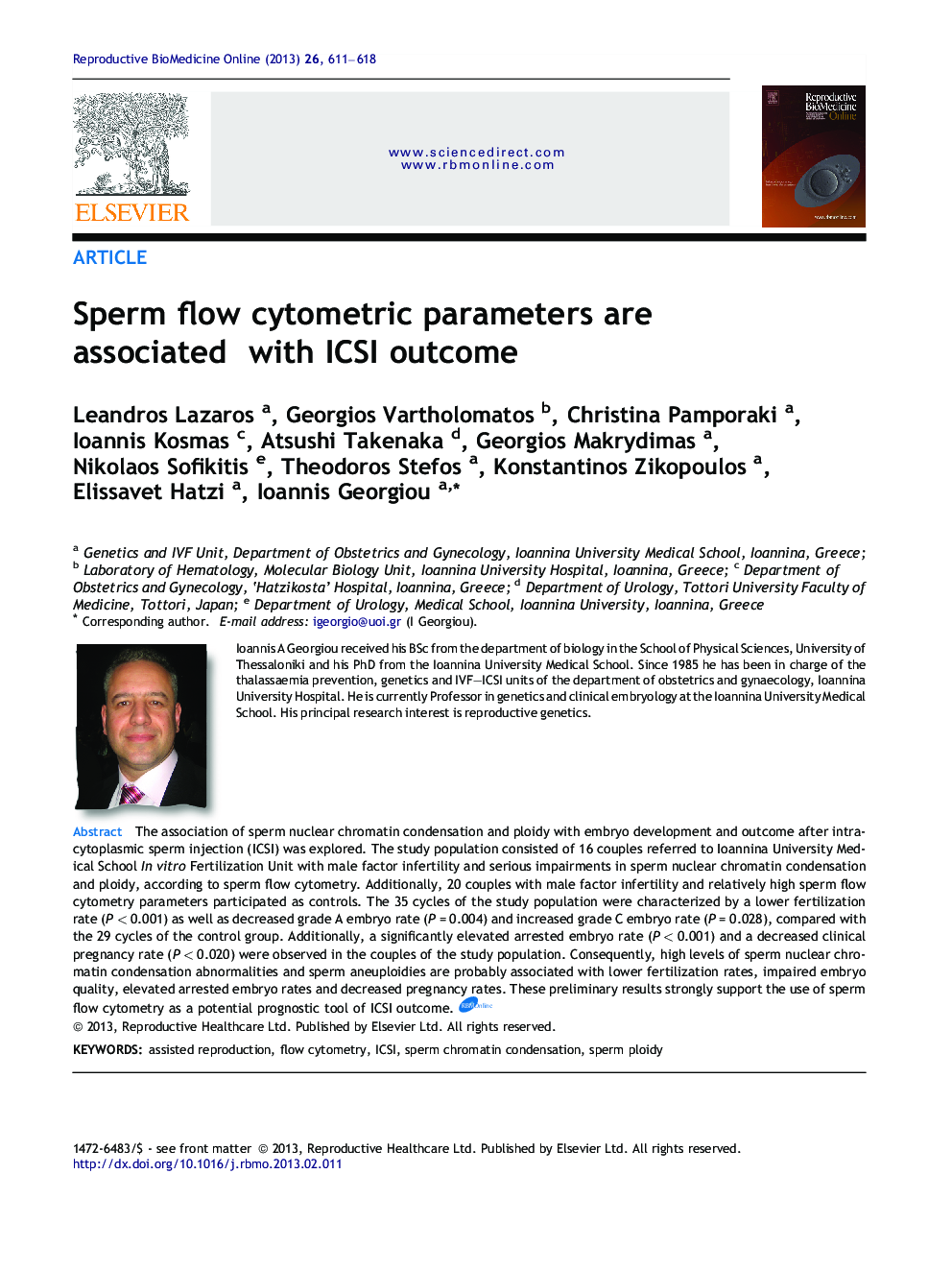| کد مقاله | کد نشریه | سال انتشار | مقاله انگلیسی | نسخه تمام متن |
|---|---|---|---|---|
| 6189157 | 1256719 | 2013 | 8 صفحه PDF | دانلود رایگان |

The association of sperm nuclear chromatin condensation and ploidy with embryo development and outcome after intracytoplasmic sperm injection (ICSI) was explored. The study population consisted of 16 couples referred to Ioannina University Medical School In vitro Fertilization Unit with male factor infertility and serious impairments in sperm nuclear chromatin condensation and ploidy, according to sperm flow cytometry. Additionally, 20 couples with male factor infertility and relatively high sperm flow cytometry parameters participated as controls. The 35 cycles of the study population were characterized by a lower fertilization rate (PÂ <Â 0.001) as well as decreased grade A embryo rate (PÂ =Â 0.004) and increased grade C embryo rate (PÂ =Â 0.028), compared with the 29 cycles of the control group. Additionally, a significantly elevated arrested embryo rate (PÂ <Â 0.001) and a decreased clinical pregnancy rate (PÂ <Â 0.020) were observed in the couples of the study population. Consequently, high levels of sperm nuclear chromatin condensation abnormalities and sperm aneuploidies are probably associated with lower fertilization rates, impaired embryo quality, elevated arrested embryo rates and decreased pregnancy rates. These preliminary results strongly support the use of sperm flow cytometry as a potential prognostic tool of ICSI outcome.Recent studies have shown that sperm chromatin condensation and ploidy constitute critical parameters for the successful intrauterine insemination and IVF outcome. The aim of the current study was to investigate their impact on embryo development after intracytoplasmic sperm injection (ICSI) and consequently on ICSI success. The study population was consisted of 16 couples with male factor infertility and serious impairments of sperm nuclear chromatin condensation and ploidy, according to sperm flow cytometry after acridine orange and propidium iodide staining. Additionally, 20 couples with male factor infertility and relatively high sperm flow cytometry parameters participated as controls. All couples were referred to Ioannina University Medical School In vitro Fertilization Unit for infertility treatment, where ICSI was performed. The fertilization, embryo quality and clinical pregnancy rates were recorded. The 35 ICSI cycles of the study population and the 29 cycles of the control group revealed significantly decreased fertilization rates and grade A embryo rates as well as increased grade C embryo rates in the study population compared with the control group. Additionally, significantly elevated arrested embryos rates and decreased clinical pregnancy rates were observed in the couples of the study population. Consequently, the high levels of sperm nuclear chromatin condensation abnormalities and sperm aneuploidies are probably associated with lower fertilization rates, impaired embryo quality, elevated arrested embryo rates and decreased pregnancy rates. Based on our preliminary results, we suggest the use of sperm flow cytometry as a potential prognostic tool of ICSI outcome.
Journal: Reproductive BioMedicine Online - Volume 26, Issue 6, June 2013, Pages 611-618